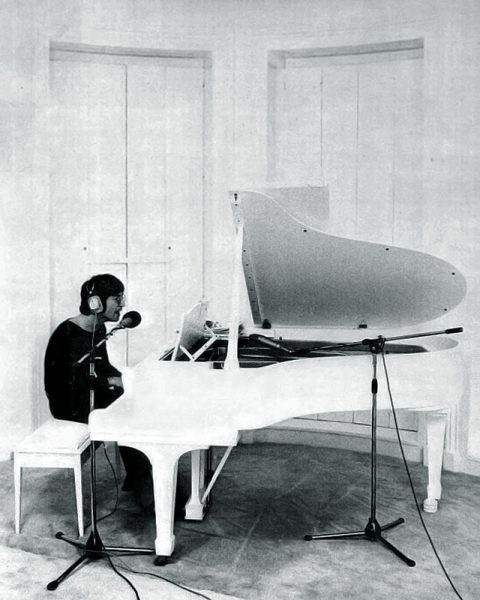As Mark Steyn pointed out, it isn’t hard to do:
In his Christmas sermon five years ago, the Bishop of Shrewsbury described John Lennon’s ghastly dirge “Imagine” as “heart-chilling”. Here’s what I had to say about it, and about secularism and a common culture, in the Christmas issue of The Spectator a decade earlier:
At my daughter’s school this year, the holiday concert concluded with John Lennon’s “Imagine”. The school had thoughtfully printed the lyric on the program, and the teacher, inviting the parents to sing along, declared the number summed up what we were all “praying” for. Indeed. The droning vamp began, and John’s anthem for cotton-candy nihilists rent the air:
Imagine there’s no heaven
It’s easy if you try
No hell below us
Above us only sky
Imagine all the people
Living for today …Ah, that’s the message of the season, isn’t it? Back in the Sixties, John opined that the Beatles were bigger than Jesus Christ, which was a wee bit controversial in those unenlightened times but which appears to be no more than a prosaic statement of fact as far as the music department’s priorities are concerned. These days, “Imagine” has achieved the status of secular hymn, no doubt because of its inclusive message:
Imagine there’s no countries
It isn’t hard to do
Nothing to kill or die for
And no religion, too …Hey, happy holidays!
You may say he’s a dreamer, but he’s not. A couple of years ago, it emerged that Lennon was a very generous contributor not just to organizations that support and fund the IRA, but to the IRA itself. He could certainly imagine there’s no countries, nothing to kill or die for and no religion, too, but until that blessed day he was quite happy to support a religiously discriminatory organization that blows up grannies at shopping centres in order to get out of one country and join another. How heartening to know that, though he grew rich peddling illusory pap to the masses, he didn’t fall for it himself.
“Imagine” didn’t go over wild with the parents, who mumbled along unenthusiastically. To be honest, I’d prefer John and Yoko’s peacenik dirge, “(Happy Xmas) War Is Over”, though that might be a little premature and anyway that song suffers from the disadvantage of mentioning Xmas. On the radio you can hear “Frosty” and “Rudolph” and James Taylor’s new post-9/11 version of “Have Yourself A Merry Little Christmas”, but anyone with young children finds themselves exposed to a strange alternative repertoire of unseasonal favourites. My friend Tammy emerged from her daughter’s kindergarten concert in a rage: not just no Christmas carols, but no “Jingle Bells”. The only song she recognized was Lionel Bart’s spectacular melisma pile-up from Oliver!, “Whe-e-e-e-ere Is Love?”, which is not designed to be sung en masse. “They sounded like they were dying,” she fumed, before going off to beard the school board, who explained that “Jingle Bells” had been given the heave-ho on the grounds that it might be insensitive to those of a non-jingly persuasion.




